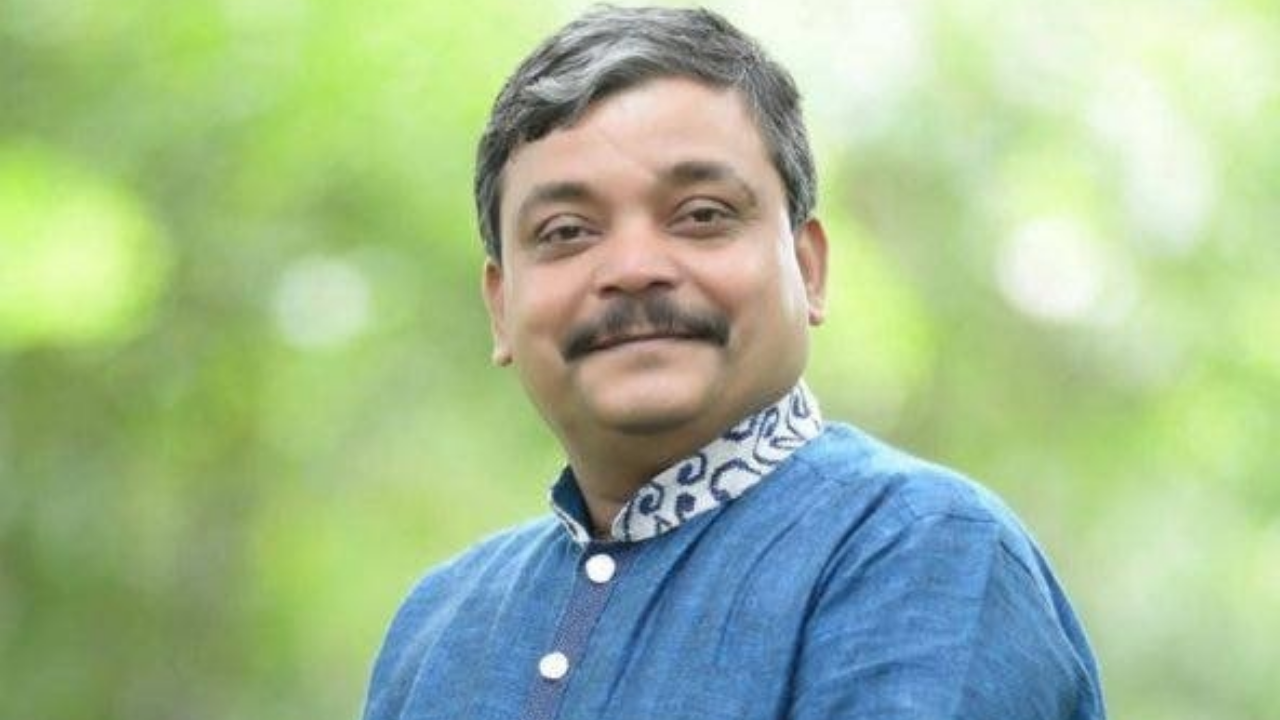The Kannada film and theatre fraternity is mourning the sudden demise of actor-director Yashwanth Sardeshpande, whose contributions spanned over three decades. Known for his nuanced performances and bold directorial choices, Sardeshpande left an indelible mark on stage and screen. His passing has triggered an outpouring of grief from colleagues, fans, and students of theatre who regarded him as a mentor and inspiration. Tributes poured in across social media platforms, with many recalling his dedication to promoting Kannada culture, nurturing young talent, and elevating theatre as an art form accessible to all sections of society.
Sardeshpande’s career was marked by versatility, spanning commercial films, experimental theatre, and educational workshops. He was celebrated for his ability to imbue characters with depth, blending realism with dramatic intensity. As a director, he tackled socially relevant themes, often highlighting marginalized voices while maintaining audience engagement. His productions were noted for meticulous attention to detail, innovative set designs, and a commitment to authenticity. Theatre enthusiasts recall his ability to transform simple narratives into thought-provoking performances, leaving audiences deeply moved. His influence extended beyond performance, as he actively mentored aspiring actors and directors, shaping the next generation of Kannada theatre.
The news of his demise has sparked discussions about his enduring legacy and the void left in Karnataka’s cultural landscape. Prominent actors, directors, and theatre groups expressed shock and sorrow, highlighting Sardeshpande’s role in elevating regional theatre to national recognition. Many fans visited theatres where he had performed to pay homage, leaving flowers and messages. His contributions were not limited to performance; he played a pivotal role in advocating for cultural policies that supported theatre groups, organised workshops, and promoted Kannada literature through adaptations. The outpouring of grief underlines the personal and professional impact Sardeshpande had on Karnataka’s artistic community.
Tributes from the Cultural Community
Colleagues described Yashwanth Sardeshpande as a passionate, humble, and inspiring figure. Many recalled how he mentored young actors and encouraged experimentation in theatre. His ability to connect personally with peers and students left a lasting impression, shaping careers and building a strong cultural network.
Fans took to social media to share memories of performances that moved them emotionally. Stories of his kindness, generosity, and dedication to Kannada arts were widely circulated, reinforcing his status as a cultural icon whose influence extended far beyond the stage.
In the wake of his passing, cultural organizations across Karnataka are calling for initiatives to preserve Sardeshpande’s work for posterity. Archiving his scripts, recordings of performances, and interviews is being prioritized, ensuring that future artists and researchers can study his methodology and creative vision. Plans for establishing a foundation in his name are also being discussed, aimed at supporting aspiring actors, directors, and theatre groups. By institutionalizing his legacy, Karnataka’s arts community hopes to transform grief into inspiration, ensuring that Yashwanth Sardeshpande’s dedication to theatre and cinema continues to guide and motivate generations to come.
Yashwanth Sardeshpande’s journey in theatre began in his early years, where he displayed remarkable talent in local drama competitions. His passion for performing arts led him to pursue formal training in acting and direction, allowing him to blend classical techniques with contemporary storytelling. Over the years, he became a bridge between traditional theatre forms and modern performance methods, encouraging experimentation while preserving Kannada cultural essence. His early stage work often explored folklore and historical themes, captivating audiences and laying the foundation for a career that would later influence generations of actors and directors across Karnataka.

His transition into cinema was marked by thoughtful selection of roles that challenged stereotypes. Sardeshpande was known for choosing characters that highlighted social issues, often portraying individuals from marginalized communities with dignity and depth. Critics praised his subtle yet powerful performances, noting that he could convey complex emotions with minimal dialogue. As a director, he applied the same philosophy, creating films that were both artistically compelling and socially conscious. This dual commitment to performance and storytelling cemented his reputation as a versatile and socially aware artist.
In theatre circles, Sardeshpande was celebrated not only for his talent but also for his mentorship. He established workshops and training programs for aspiring actors, emphasizing discipline, creativity, and cultural literacy. Students often spoke of his patience and encouragement, highlighting his unique ability to nurture raw talent without imposing rigid methodologies. Many actors who trained under him have now become notable figures in Karnataka’s theatre and film scene, continuing his legacy of excellence and commitment to the arts.
Sardeshpande’s directorial ventures often included adaptations of literary works, bringing classical Kannada literature to contemporary audiences. His productions combined elaborate set designs, innovative lighting, and precise choreography, creating immersive experiences for viewers. Critics noted that his approach elevated local theatre, demonstrating that regional art could compete with national and international standards. His dedication to quality and authenticity inspired peers to strive for higher artistic benchmarks, contributing to a renaissance in Karnataka’s cultural scene.
The actor-director’s influence extended beyond creative pursuits. He was an advocate for policies supporting performing arts institutions, lobbying for funding, infrastructure development, and recognition of theatre as a vital component of cultural identity. Sardeshpande collaborated with government bodies and non-governmental organizations to organize festivals, competitions, and public performances, ensuring that theatre remained accessible to rural and urban audiences alike. His efforts helped sustain numerous local theatre troupes that might otherwise have struggled to survive.
Sardeshpande’s contribution to Kannada cinema was equally significant. He seamlessly transitioned between theatre and film, bringing theatrical discipline and depth to his screen performances. Directors often sought his expertise for character development, dialogue delivery, and scene structuring. Even in cameo roles, his presence added gravitas to the narrative, reflecting a lifelong commitment to enhancing every project he touched. His ability to balance commercial appeal with artistic integrity made him a respected figure in both industries.
Many colleagues have shared personal anecdotes highlighting Sardeshpande’s humility and generosity. Despite his fame, he remained approachable, often attending rehearsals, workshops, and community events without fanfare. Actors recall late-night discussions about scripts, improvisation sessions, and mentoring moments that extended beyond professional obligations. His belief in collaborative effort over individual glory shaped the way he directed plays and films, fostering inclusive creative environments that brought out the best in everyone involved.
Legacy and Lasting Impact
Sardeshpande’s contributions will continue to resonate through the theatre and film communities. His focus on promoting regional language, cultural identity, and socially relevant themes has inspired countless productions. Institutions he supported are expected to honor his memory through performances, scholarships, and cultural initiatives, ensuring his legacy endures.

The impact of his death has been deeply felt in academic institutions as well. Universities and theatre schools that collaborated with Sardeshpande have announced memorial lectures, scholarships, and performances in his honor. His methodologies and creative vision are being integrated into curricula, ensuring that students continue to learn from his approach. Educators describe him as a living example of how dedication, cultural awareness, and innovation can transform both the artist and the art form.
Social media has amplified the collective mourning, with thousands of fans sharing images, videos, and stories of their encounters with him. Tributes emphasize his dual role as an entertainer and cultural ambassador, celebrating his ability to inspire audiences of all ages. Many followers expressed personal gratitude, recalling how his performances or guidance influenced their own career choices, reflecting the deep personal connection he fostered throughout his life.
Critics and historians are already documenting Sardeshpande’s legacy in Kannada performing arts. His body of work is being archived, with careful analysis of his contributions to theatre, cinema, and cultural education. Scholars point to his ability to blend traditional motifs with contemporary relevance as a defining feature of his career. By preserving his methods and performances, future generations can study and draw inspiration from an artist who consistently prioritized cultural authenticity alongside innovation.
The actor-director’s passing has sparked a dialogue on the importance of supporting artists while they are alive. Industry peers are emphasizing the need for sustainable funding, recognition, and welfare schemes for cultural practitioners. Sardeshpande’s life is now being cited as a reminder of the critical role individuals play in preserving and advancing regional arts. Many hope that his death will catalyze efforts to strengthen Karnataka’s cultural ecosystem and honor artists who dedicate their lives to creative pursuits.
His theatre productions often tackled themes that challenged social norms and encouraged critical thinking. Plays directed by Sardeshpande addressed issues such as gender equality, social justice, and rural development, prompting audiences to reflect on societal structures. By combining entertainment with meaningful commentary, he elevated theatre as a tool for both artistic expression and social awareness, leaving a lasting educational impact alongside aesthetic achievement.
Family, friends, and collaborators are organizing memorial events to celebrate his life and contributions. Tributes will include public performances of his notable plays, screenings of his films, and workshops led by his protégés. These commemorations aim to honor his vision, inspire current and future artists, and ensure that his impact on Kannada theatre and cinema continues to resonate well beyond his passing.

Finally, Yashwanth Sardeshpande’s legacy is defined by the seamless integration of talent, mentorship, and cultural advocacy. His life exemplifies how an artist can influence not only entertainment but also education, social awareness, and community development. The void left by his passing underscores the profound impact one individual can have on an entire cultural ecosystem, reminding Karnataka and India at large of the enduring power of theatre and cinema in shaping hearts and minds.
Follow: Karnataka Government
Also read: Home | Channel 6 Network – Latest News, Breaking Updates: Politics, Business, Tech & More

